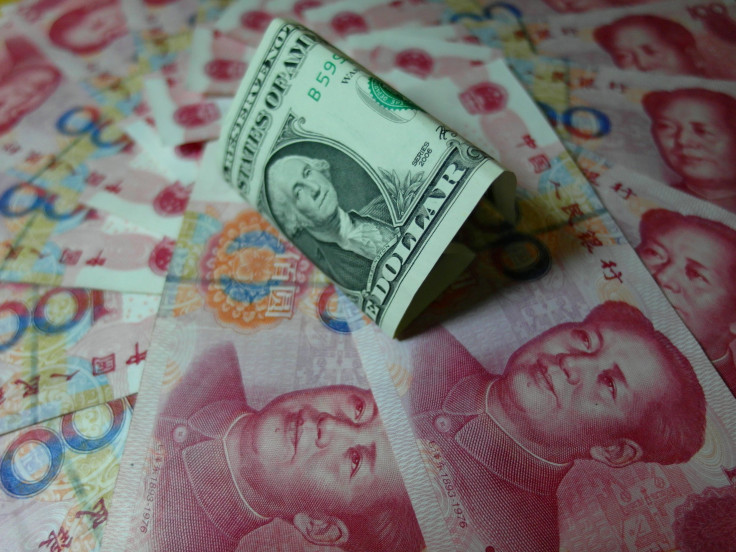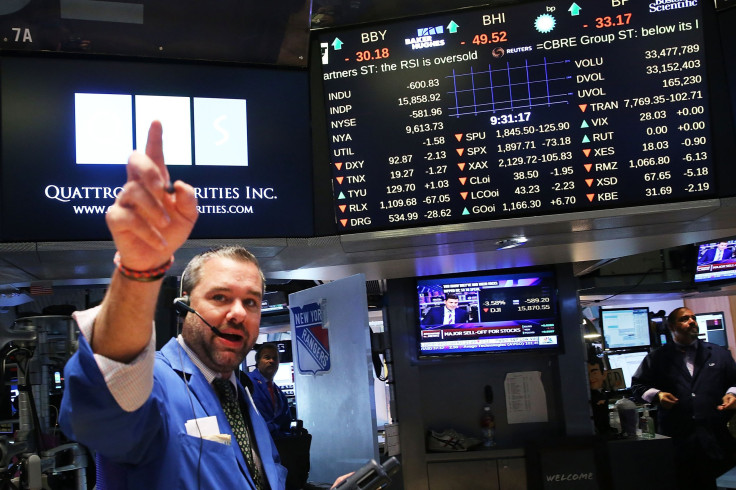Return Of The 1990s: Will China's 'Black Monday' Lead To A Replay of 1997's Asian Financial Crisis?

Thai financial managers watched with horror as the ticker fell on their monitors during the weekend -- the country’s stock exchange was slipping, and the textile industry, one of the largest sectors in the country's economy, had suffered since the Chinese yuan dropped 2 percent against the dollar two weeks ago. The Chinese devaluation caused the Thai market to plunge to a multimonth low. A terrorist attack in the tourist hotspot of Bangkok last week pushed shares down even further.
Thailand's economy is the second largest in southeast Asia but like many other emerging economies, the Thai economy is export-dependent, with exports accounting for more than two-thirds of its gross domestic product. China is its largest customer, making Thailand heavily dependent on the Chinese economy. China's currency devaluation had a knock-on effect on the baht, which lost as much as 0.5 percent to 35.55 against the U.S. dollar, the lowest since April 2009.
Malaysia and South Korea are also taking the financial hit of a weakened Chinese economy, panicking investors and banks who fear a replay of the 1997 Asian financial crisis.
“Too many of these countries had no reserves back then and got assistance from the IMF way too late to do any good,” said Barry Bosworth, an adviser to former President Jimmy Carter and an expert in the global economy at the Brookings Institution, a think-tank based in Washington. “I think things have changed a lot since then.”
In 1997 the Thai government was forced to float the baht because of a lack of foreign currency to support its fixed exchange rate. Japan plunged into a deflationary spiral and Russia defaulted on its debt a year later. Companies that had received large, unhedged foreign currency loans faced high debt repayments.
Since then, countries most affected by the crisis have recovered by embracing the free market, loosening exchange rates and decreasing domestic interest rates. Asian governments, encouraged predominantly by the U.S., tightened up domestic lending and foreign borrowing controls. The crisis pushed countries in southeast Asia into a recession but spurred openness and transparency in the global economy. Two decades on, most Asian economies enjoy sizeable current-account surpluses and have foreign-exchange reserves that help to safeguard their currencies from further devaluation.

But not all Asian economies are insulated against extreme market volatility. Some countries in Asia will lose out more than others, said Clare Howarth, the lead economist for the Asia Pacific Global Macro service for Oxford Economics.
“I think the emerging markets that don’t have an account surplus will be very badly affected. They won’t have the scope to support their economies ,” Howarth told International Business Times. Those economies could include countries such as Cambodia.
Although the Chinese devaluation has made matters worse for countries in southeast Asia, the bubble was bound to burst, analysts say.
“What has been happening in the last week or two is not just Chinese devaluation,” Howarth said. “There is obviously more going on behind that." The economic slowdown in China, she argued, could lead to "a possible recession" in some parts of the country.
But it's not only China that finds itself on shaky financial footing. Financial managers pulled about $26 billion out of emerging-market stocks and bonds around the world from January to July, data from EPFR Global, a private company that tracks the flow of funds globally, show.
Bosworth, the analysts from the Brookings Institution, said the Chinese economy is slowing more than the government intended and the scope of that slowdown could be much greater than is being reported. Indonesia, Thailand and Malaysia are all likely to fall short of International Monetary Fund expectations.
"I think this is a significant assessment of the economic situation in Asia," he told IBTimes. "Many of these countries are dependent on the Chinese market. Growth is less than anticipated and the effects are spreading throughout Asia."
For investors the short-term effects are going to be negative. "There is a shortage of good investment opportunities around the world," Bosworth said. "People tried to adjust to emerging markets and it appears they created bubbles and now they are paying the price for it."
© Copyright IBTimes 2024. All rights reserved.




















